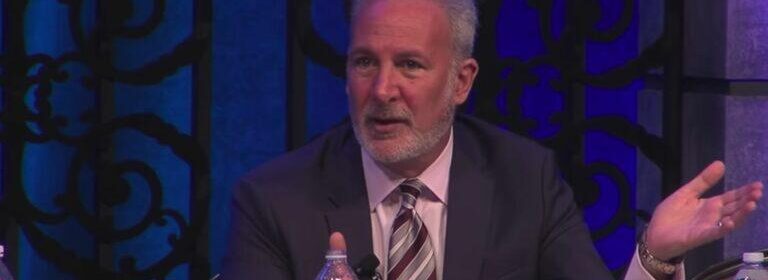Peter Schiff Warns U.S. in Early Stages of Major Bond Market Crash

On 2 October 2023, Peter Schiff, the Chief Executive Officer of Euro Pacific Capital, issued a warning about what he believes to be the early stages of the largest bond market crash in the history of the United States. The statement was made on social media platform X, which was formerly known as Twitter. Schiff also holds multiple positions in different financial services firms, such as Euro Pacific Asset Management, an autonomous investment advisory firm; Schiff Gold, previously known as Euro Pacific Precious Metals, a dealer in precious metals; and Euro Pacific Bank, a bank that operates on a full-reserve basis.
Schiff’s warning is dire and encompasses various sectors of the economy. He suggests that every entity—from governments and corporations to landlords and families—that has been dependent on low-cost debt for their financial stability will face severe consequences. According to Schiff, these entities are at risk of financial ruin as the bond market crashes.
Furthermore, Schiff posits that any attempts by the Federal Reserve to intervene in the situation could make matters worse. He argues that if the Federal Reserve steps in to try and “save” these struggling entities, it could inadvertently “kill” them by causing inflation. Inflation would erode the purchasing power of money, making it even more difficult for these entities to service their debts and meet other financial obligations.
In a recent episode of “The Peter Schiff Show,” financial commentator Peter Schiff sounded the alarm on the precarious state of the U.S. economy. Schiff highlighted the unsustainable rise in interest rates as a major factor pushing the economy toward an inevitable collapse. His warning comes amid a national debt that has skyrocketed to over $33 trillion, making the economy highly vulnerable to even slight increases in interest rates.
Schiff was unequivocal in his assertion that a severe financial downturn or stock market crash is not a matter of if, but when. He stated that while Federal Reserve Chairman Jerome Powell might be able to delay the crisis by hinting at interest rate reductions, such actions would merely serve as a temporary reprieve. Schiff compared the current economic climate to being on the edge of a cliff, with a fall being not a question of possibility but of timing.
One of the main triggers for the looming crisis, according to Schiff, is the continuous increase in interest rates, further aggravated by a faltering bond market. He pointed out that bond yields have soared to their highest levels since before the 2008 financial crisis, with the 10-year Treasury yield nearing 5%. This is especially concerning given the tenfold increase in national debt from $3.3 trillion in 2001.
Schiff also took aim at the mainstream financial media, accusing them of underestimating the severity of the situation. He argued that the entire economic system, including governmental structures, has been erected on the unstable ground of low-interest rates. For almost 15 years, these rates have been near zero to encourage borrowing and spending, leading to hazardous levels of leverage.
Schiff further noted that not just bond yields, but all kinds of interest rates are climbing. Mortgage rates are approaching 8%, and average credit card interest rates are nearly 21%. With credit card debt exceeding $1 trillion, Schiff cautioned that an economy built on easy borrowing is unsustainable once that source of funding evaporates. He also discussed the abnormal yield curve as another red flag, stating that long-term yields are not in sync with current short-term rates, which is another sign of the systemic issues facing the economy.
https://youtube.com/watch?v=LrFQJ6KBFuM%3Ffeature%3Doembed
Source: Read Full Article
